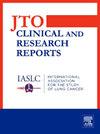非裔肺癌患者:非洲、北美、南美和加勒比地区流行病学、差异、结果和公平机会的跨大陆回顾
IF 3.5
Q2 ONCOLOGY
引用次数: 0
摘要
非洲人后裔肺癌的特点是由流行病学异质性、系统性不平等和获得卫生保健机会不平等造成的跨大陆差异。在全球范围内,肺癌发病率和死亡率各不相同;然而,由于癌症登记和诊断基础设施有限,低收入和中等收入国家的诊断不足和晚期表现掩盖了肺癌的真实患病率。在非洲,大多数肺癌患者处于晚期,主要原因是卫生文盲、误诊、转诊延误和治疗基础设施不足。尽管吸烟仍然是世界范围内的一个主要风险因素,但非洲人口不成比例地暴露于环境和职业危害中,这大大提高了他们患肺癌的风险。在北美,与白人相比,黑人经历了不成比例的不良结果,包括肺癌筛查、早期诊断、手术干预的比例较低,死亡率较高。在加勒比和南美洲,黑人继续面临着种族基础设施限制、种族不平等以及环境和职业致癌物暴露的增加。系统性障碍使这些差异持续存在,包括筛查、基因组检测和符合指南的治疗的有限机会。实现肺癌结果的公平需要采取战略举措,包括扩大非洲、加勒比和南美洲的肺癌登记,为循证干预措施提供信息。紧急采取国家和国际措施,重点关注非洲人后裔的预防和护理,实施强有力的烟草控制政策,解决系统性和种族不平等问题,以及加强卫生保健系统以有效报告和管理肺癌,这些都是缩小差距的重要步骤。包括建立肺癌研究联盟在内的跨洲合作方法对于分享筛查方案的最佳做法、优化早期发现战略和治疗以及倡导政策改革以解决非洲人后裔肺癌的全球负担至关重要。本文章由计算机程序翻译,如有差异,请以英文原文为准。
Lung Cancer in Patients of African Descent: A Transcontinental Review of Epidemiology, Disparities, Outcomes, and Opportunities for Equity in Africa, North America, South America, and the Caribbean
Lung cancer in people of African descent is characterized by transcontinental disparities driven by epidemiologic heterogeneity, systemic inequities, and unequal access to health care. Globally, lung cancer incidence and mortality rates vary; however, underdiagnosis and late-stage presentation in low- and middle-income countries obscure the true prevalence of lung cancer because of limited cancer registries and diagnostic infrastructure. In Africa, most patients with lung cancer present at an advanced stage, primarily because of health illiteracy, misdiagnosis, delayed referrals, and inadequate treatment infrastructure. Although tobacco smoking remains a dominant risk factor worldwide, African populations are disproportionately exposed to environmental and occupational hazards, which substantially elevate their lung cancer risk. In North America, Black people experience disproportionately poor outcomes, including lower rates of lung cancer screening, early diagnosis, surgical intervention, and higher mortality rates compared with their White counterparts. In the Caribbean and South America, Black people continue to face racial infrastructural constraints, racial inequities, and elevated exposure to environmental and occupational carcinogens. Systemic barriers perpetuate these disparities, including limited access to screening, genomic testing, and guideline-concordant therapies.
Achieving equity in lung cancer outcomes requires strategic initiatives, including the expansion of lung cancer registries in Africa, the Caribbean, and South America, to inform evidence-based interventions. Urgent national and international measures focused on prevention and care for populations of African descent, implementing robust tobacco control policies, addressing systemic and racial inequities, and strengthening health care systems to report and manage lung cancer efficiently are essential steps toward reducing disparities. A transcontinental collaborative approach that includes establishing lung cancer research consortia is vital to share best practices in screening protocols, optimize early detection strategies and treatment, and advocate for policy reforms that address the global burden of lung cancer in populations of African descent.
求助全文
通过发布文献求助,成功后即可免费获取论文全文。
去求助
来源期刊

JTO Clinical and Research Reports
Medicine-Oncology
CiteScore
4.20
自引率
0.00%
发文量
145
审稿时长
19 weeks
 求助内容:
求助内容: 应助结果提醒方式:
应助结果提醒方式:


